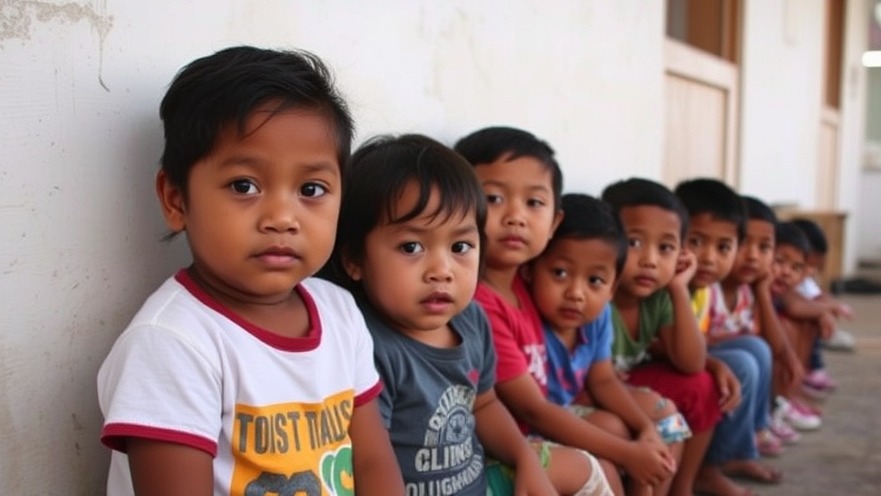
The Crisis for Vulnerable Guatemalan Children
In recent days, a dramatic legal battle has emerged in Texas over the fate of about 50 unaccompanied Guatemalan children, who were moments away from a flight back to their home country. The events, unfolding at Valley International Airport in Harlingen, took a critical turn when a federal judge intervened, temporarily halting their deportation. This situation raises significant questions regarding the treatment of migrant minors and their legal protections under U.S. law.
Legal Rulings and Human Rights
U.S. District Judge Sparkle L. Sooknanan, in a spontaneous ruling upheld shortly before deportations were set to occur, highlighted potential violations of children’s rights. The urgency of the judge's decision reflects broader concerns regarding the policies enacted by the previous administration that aimed to expedite deportations without due process. "This idea that... they would wake up these vulnerable children and put them on a plane irrespective of the constitutional protections that they had is something that should shock the conscience of all Americans," declared Kica Matos, president of the National Immigration Law Center, which represents the affected children. The precarious legal status of these minors has unearthed a larger debate about immigration policy and enforcement practices.
Understanding the Broader Context
The legal protections for migrant children originate from laws intended to safeguard their welfare, as they are deemed vulnerable and less equipped to navigate the complexities of immigration law. This situation echoes previous instances where rapid immigration enforcement was challenged in courts. In March, a similar case involving Venezuelans also saw a judge stepping in to block what was deemed unnecessary deportations amidst chaotic circumstances. Such incidents highlight a continued tension between governmental policy and the rights afforded to asylum seekers and migrant children, pushing the judicial system to serve as a fundamental check.
Children's Stories and Legal Concerns
Among the group affected, individual stories reveal the harrowing conditions prompting their migration. One girl, now in a U.S. shelter, expressed deep fears of returning to Guatemala, noting threats against her life and previous experiences with neglect and abuse. Another child explicitly stated, "I do not have any family in Guatemala that can take good care of me." These personal accounts serve to humanize the broader immigration crisis, reminding stakeholders of the importance of individual circumstances in legislative and judicial considerations on immigration.
The Implications for Texas and Its Residents
For Texans, this situation resonates deeply within conversations about immigration policy and border security, particularly as they approach the 2025 elections. With contentious discussions surrounding gun laws, border security, and educational reforms taking center stage, the welfare of immigrant children presents significant ethical considerations that voters should reflect upon. Advocates for immigrant rights will continue to push for humane policies that protect vulnerable populations against harsh treatments, contrasting the views of those who favor strict enforcement of immigration rules.
What Comes Next?
As the legal battle unfolds, the next steps will be critical in determining the long-term futures of these children. The scheduled hearing presents an opportunity for the courts to reaffirm the protections available to vulnerable migrants, potentially influencing how immigration policies are shaped going forward. Observers argue that ensuring the safety and welfare of these children could redefine local and national perceptions of Texas as a state grappling with complex immigration realities.
Call to Action
As we witness these unfolding events, it's essential for readers to stay informed about the impacts of immigration policies and their humanitarian implications. Engaging in conversations about these topics and advocating for protective measures is vital. Moving forward, you can support local organizations that work towards the welfare of migrant children and get involved in community discussions surrounding immigration reform.
 Add Element
Add Element  Add Row
Add Row 



Write A Comment